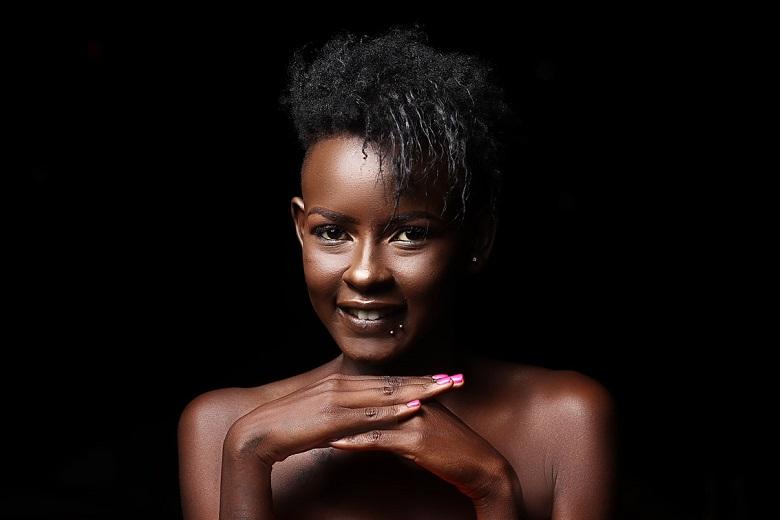The word “The Black” or “Black” is generally used to distinguish a dark skin person. Although it often refers to people from sub-Saharan Africa, the term can be used to refer to Asians (Dravidians, Negritos, etc.) or Oceanic people (Papuans, Aborigines, etc.).
Based on skin pigmentation, the category “black” has no formal and objective definition. In the early 19th century, when racial theories were widespread, the term was associated with the concept of “black race”, and referred to people with darker or lesser skin colour, often with black hair and brown eyes, coming from sub-Saharan Africa and to a lesser extent from South Asia and Oceania.
Classifying humanity’s appropriateness into a series of “races” is currently being contested and debated by scientists, including genetic studies.
Some scientists, including Tony Fitzpatrick in 2003, argue that it is impossible to divide humanity into races. However, in 2004, Marcus Feldman and other scientists state that the human genome identifies the geographical areas from which they come, which they call “race”. However, the term race is still widely used in some languages.
In the 19th and 20th centuries, anthropologists attempted to define the “black race”. The term is also used in the legislation of States that practice discrimination based on race.
The Black can also be used within supposedly scientific discourses and racist arguments. The term ‘black’ itself, used to refer to a person by skin colour, can sometimes be perceived as racist scolding.
However, scientific studies based on genetics since the mid-twentieth century have argued that the concept of race is irrelevant for characterizing different geographic subgroups of the human species, as the genetic variability between individuals in a subgroup is greater than the average genetic variability between geographic subgroups.
In any case, the current scientific consensus rejects the existence of biological arguments to legitimize the notion of race, attributed to arbitrary representations according to morphological, ethnic, social, cultural or political criteria, such as identity.
Biologically speaking, dark skin is an epidermis high in melanin, so it is a genetic adaptation based on natural selection to protect against ultraviolet radiation in intense sunlight environments. These environments are less at risk of vitamin D deficiency, in contrast to weaker sunny countries where people have lighter skin.
In North America, countries such as the US and Canada use the term for statistical classification purposes. Some European countries, such as the UK as well. The US eventually officially replaced the term African-American, primarily due to the African-American Civil Rights Movement. Nevertheless, the use of the word ‘the black’, including by American blacks themselves, remains widespread.
This description by skin colour is also used in most countries in a criminological framework (locating missing persons, witnesses or suspects) to meet the need for identification through the verbal, physical description.
In the US, the term “black” is not an indicator of skin colour but a social classification. People with dark skin can be classified as white if they meet certain socio-cultural criteria of “whiteness” and those with light skin can be classified as Black if they meet certain socio-cultural criteria of “blackness”.
In March 1807, Britain, which largely controlled the Atlantic, declared the slave trade illegal. (The ban did not go into effect until 1 January 1808 because the United States Constitution protected the slave trade in Article I, Section 9.)
By then, most blacks in the US were born there. The term “African” therefore became problematic. Although it was a source of pride, many black people feared that using the African term to describe them could be an obstacle to their struggle to gain full American citizenship. They also thought it would give an excuse to those who fought for blacks to return to Africa.
In 1835 black leaders called “American Negroes” removed the word “African” and replaced it with “Negro” or “coloured American”. Some institutions chose to retain their historical name. African-Americans used the terms “Negro” or “Coloured” to describe themselves until late 1960.
With the success of the African-American civil rights movements, a new term is needed to break ties with the past and help remove legal discrimination reminders. Instead of ‘Negro’, activists promoted the word ‘Black’ as a statement of pride, militancy and power. One of the most famous examples is Black Power’s term, Kwame Toure (Stokely Carmichael) and singer James Brown’s song: Say It Loud – I’m Black, and I’m Proud.
The American Census of Races states that a “black” is a person of sub-Saharan African descent. This includes people who call themselves “black, African American or Negro” or use written terms such as African American, Kenyan, Nigerian or Haitian. The Census Bureau notes that these classifications are sociopolitical in nature and should not be interpreted scientifically or anthropologically.
